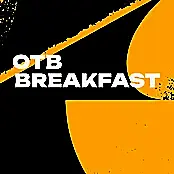"I was here for about four or five years, but I knew after two or three years that it wasn't going to succeed. The Rovers fans did want us to succeed, but the rest of the other fans didn't because we were a rival to them. But we had nobody coming with us."
Those are the words of Leeds United and Ireland legend John Giles as he recalled the time he came back to Ireland to become player-manager of Shamrock Rovers.
It was the late 1970s and he was back in the country after a successful career as part of a great Leeds United side followed by a two-year spell as player-manager at West Brom between 1975 and 1977.
He had already been Ireland player-manager since 1973, having taken charge shortly before a second Irish team visit to South American in the space of three years that former Ireland full-back Paddy Mulligan once told us about on Newstalk's Team 33.
Former Ireland women's and Drogheda United manager Mick Cooke was at Shamrock Rovers in 1977 when Giles arrived along with Eamon Dunphy in order to build something ambitious at the Dublin club, from professionalism to a revamped youth system that would keep more players in Ireland.

Mick Cooke
But as John said, it quickly became apparent that sparking change would be far from easy within the League of Ireland of that time.
"I thought if we keep enough young Irish players here, give them good facilities and full-time training, then we would progress rather than the lads going to England," he once told Newstalk.
"We tried to look after the players and got an education for them. They were under contract so that if they went away they got 20 per cent of the fee which had never happened before.
"But we had nobody coming along with us. There was an awful lot of resentment. We had a youth team - it was the first time we were getting a youth team and we wanted to go into the Premier and they said "no, you'd be too strong for that". So they put us in the Third Division."
Listen to the full chat with Mick Cooke on the podcast player or on iTunes:
On this week's Team 33, Cooke spoke to us about the period and he recalled that there were high hopes among the players when John arrived at Rovers.
"He came in at a particular time at Shamrock Rovers and we all thought then that as players this would give the League a massive boost. I don't think it ever came to fruition. It didn't last too long for whatever reason," said Cooke.
He also chuckled at the memory of the time John, who as a player-manager was a midfielder of great renown, let him know who was going to start in a role that Cooke also played in.
"I was at Rovers when Johnny did take over and done pre-season and he called me into his office and said 'well, you know both of us play in midfield and I'm the manager so who's going to play?'" Cooke laughed, before touching on what happened at Rovers.
"My brother Ray came home from West Brom at the time as well but unfortunately got a bad knee injury and had to pack up his career. We all felt at the time that it was brilliant that [John] had come home with Dunphy, Ray Treacy and others. We thought the future was looking great and we all know the demise of Milltown [Glenamure Park] which should never have happened. But it did and unfortunately that killed off all the aspirations we had," he said.
Also, Cooke pointed out that the League of Ireland had started to decline from the peak days of the late '60s and early '70s when huge crowds were the norm in many places during the pre-TV days.
"[Dunphy] probably came home in the late-70s with Johnny Giles. [The peak period] might have been dying off a small bit then because at that stage football was becoming very prevalent on TV and it might have been started to die off a small bit. So the '60s and into the early '70s, I certainly think it was holding its own as regards support," he said.
Download the brand new GoLoud App in the Play Store & App Store right now! We've got you covered!
Subscribe to OffTheBall's YouTube channel for more videos, like us on Facebook or follow us on Twitter for the latest sporting news and content.








